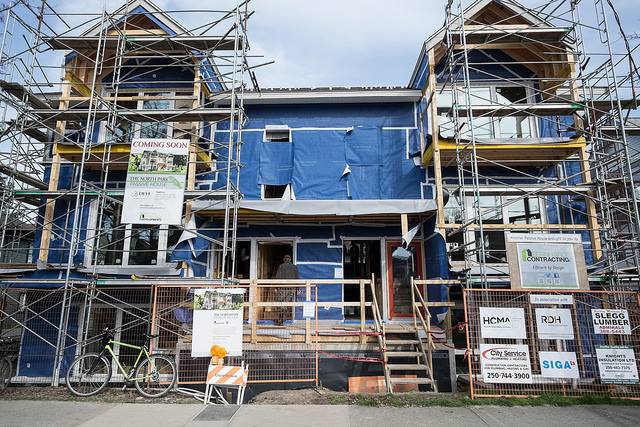
Energy Efficiency
News
B.C. rolls out funds for energy coaching, Passive House training and more
April 25, 2016 - The Government of British Columbia is announcing $1.4 million from the Innovative Clean Energy (ICE) Fund for a suite of programs to help homeowners reduce energy bills and to support training in the construction of high performance, energy-efficient homes
April 25, 2016 By Renée Francoeur

The funding will be distributed as follows:
• $600,000 to provide rebates of up to $1700 for homeowners to convert from oil heating to an all-electric air source heat pump. This funding is in addition to $600,000 provided for the Oil-to-Heat Pump Incentive Program in 2015.
• $600,000 to support the training and use of energy coaches who conduct home energy evaluations, identify opportunities for energy efficiency upgrades and explore retrofit options with homeowners. The funds will be directed through the joint BC Hydro – FortisBC Home Energy Rebate Offer (HERO) program.
• $100,000 to subsidize training for building professionals in Passive House design and construction.
• $100,000 to subsidize courses offered by the Canadian Home Builders’ Association (CHBA) and service organizations licensed by Natural Resources Canada (NRCan) in three national high-performance building standards: Energy Star for New Homes Initiative, R2000 and Net Zero Energy (NZE) Homes Builder Training.
“We applaud the province’s support that enables improvements to the energy efficiency of residential homes, providing ongoing benefits for our natural gas and electricity customers. For home renovations, energy coaching will make it easier for homeowners to make energy-efficient upgrades. For new homes, supporting industry training programs will help transform the market to high performance homes,” said Roger Dall’Antonia, executive vice-president, customer service and regulatory affairs, FortisBC.
The ICE Fund is “designed to support government’s energy and environmental priorities and advance British Columbia’s clean energy sector.” It receives funding through a 0.4% levy on the final sale of specified energy products such as natural gas, fuel oil and grid-delivered propane.
Print this page